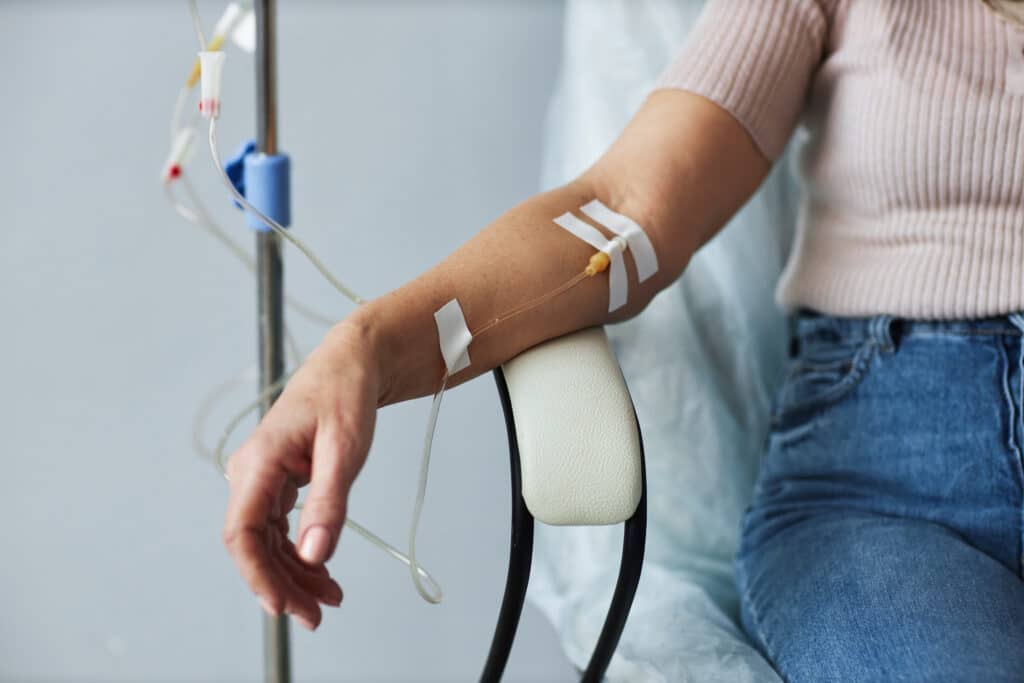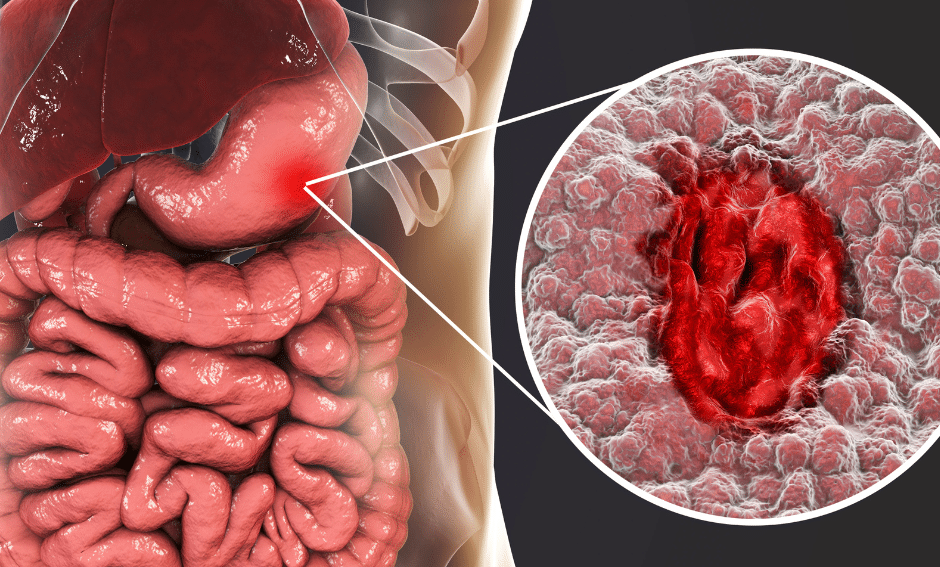Gallstones: Should I Get Gallbladder Surgery?
Gallstones form when bile stored in the gallbladder hardens. Your gallbladder is a small, pear-shaped organ on the right side of your abdomen, just beneath your liver. It holds a digestive fluid called bile that’s released into your small intestine. Gallstones are pebble-like pieces of concentrated bile material, typically made up of cholesterol or bilirubin that collect at the bottom of your gallbladder. These deposits can be as small as a grain of sand or as large as a golf ball.
Approximately 10 to 15% of people in the United States have gallstones, so they are very common. In most cases, gallstones do not cause symptoms or require treatment. However, if you’re experiencing severe pain, discomfort, or other debilitating symptoms, you may need to undergo gallbladder surgery. Keep reading to learn more about gallstones, how they can affect your quality of life, and when to seek medical care from your doctor.
Common Causes of Gallstones
Gallstones are believed to form when bile contains too much cholesterol or bilirubin, not enough bile salts, or when the gallbladder does not empty as it should. Although it is unclear exactly what causes gallstones, doctors think they can form as a result of the following factors.
- Your bile contains too much cholesterol. Usually, your bile contains enough chemicals to dissolve the cholesterol excreted by your liver. In some cases, your liver may excrete more cholesterol than normal which forms into crystals and eventually into stones. As much as 75% of gallstones are made up of excess cholesterol.
- Your bile contains too much bilirubin. Bilirubin is a chemical produced during the breakdown of red blood cells. Certain conditions cause your liver to make too much bilirubin, including liver cirrhosis, biliary tract infections, and some blood disorders. This excess bilirubin contributes to the formation of gallstones.
- Your gallbladder doesn’t empty correctly. When your gallbladder is healthy, it contracts to efficiently move bile out when necessary. However, if your gallbladder doesn’t empty completely or often enough, bile can become very concentrated and cause gallstones to form.
Who is at Risk of Developing Gallstones?
Women are more at risk of developing gallstones than men for a variety of reasons. Estrogen increases cholesterol levels, and progesterone slows down gallbladder contractions. Both hormones are especially high during menstruation and pregnancy. Other common risk factors include:
- Being 60 years of age or older
- Being of Native American or Mexican descent
- Being overweight or obese
- Having diabetes
- Having certain blood disorders
- Having a high-cholesterol diet
- Taking medications that contain estrogen
- Fasting
Signs and Symptoms of Gallstones
Gallstones are typically asymptomatic unless one gets stuck somewhere and causes a blockage. When gallstones become larger, or when they begin obstructing bile ducts, you may start to experience symptoms or “attacks.” The most common symptom of gallstones is abdominal pain in the upper right side of your abdomen, where the gallbladder is located. Other symptoms may include:
- Abdominal bloating
- Back pain between your shoulder blades
- Pain in your right shoulder
- Nausea and vomiting
- Fever and chills
- Intolerance of fatty foods
- Indigestion
You should consult your doctor immediately if you develop any of the following symptoms:
- Intense abdominal pain
- Yellowing of your skin and the whites of your eyes (Jaundice)
- High fever with chills
- Clay-colored stools
How are Gallstones Diagnosed?
Asymptomatic gallstones are sometimes discovered by accident during testing for another diagnosis. However, when pain persists, your doctor may want to conduct a full medical history and physical exam. Tests and procedures used to diagnose gallstones and their complications at Digestive Healthcare Center include:
- Abdominal ultrasound
- Endoscopic ultrasound (EUS)
- Blood tests
- Other imaging tests: a CT scan, an oral cholecystography, a hepatobiliary iminodiacetic acid (HIDA) scan, endoscopic retrograde cholangiopancreatography (ERCP), and magnetic resonance cholangiopancreatography (MRCP).
Do You Need Your Gallbladder Removed if You Have Gallstones?
Approximately 70% of people have asymptomatic gallstones. According to the Society of American Gastroenterologic and Endoscopic Surgeons, if you don’t have symptoms from your gallstones, you shouldn’t have surgery to remove your gallbladder. However, if your gallstones do cause symptoms, your doctor may recommend laparoscopic cholecystectomy. This minimally invasive procedure provides several benefits when compared with open surgery, such as:
- Less pain
- Lower risk of complications
- Quicker recovery times
- Smaller wounds and scars
After the procedure, patients can return home the same day. You can usually return to work and other normal activities within a week, as long as they don’t involve heavy lifting. For patients who are unable to have surgery, there are certain oral medications to aid in dissolving gallstones. You should talk to your doctor about the treatment options available and which one is right for you.
Comprehensive Care for Gallstones at DHC in New Jersey
At Digestive Healthcare Center, our experienced gastroenterologists are committed to helping you find relief for your gallstones. We use state-of-the-art technology and diagnostic techniques to ensure the highest level of care and comfort for each patient we work with. When you visit one of our offices in New Jersey, our team will discuss your symptoms, provide an accurate diagnosis, and develop a personalized treatment plan. Learn more about the conditions we treat and contact us to schedule a consultation at DHC today!
Make an Appointment for Comprehensive Digestive Care in NJ
At Digestive Healthcare Center, we want each patient at our three offices in New Jersey to feel confident about their digestive health. We encourage you to contact us today to make an appointment with one of our expert gastroenterologists – don’t wait to start putting your digestive health first!
Recent Blogs
Learn more about all things digestive health and wellness by checking out our recent gastroenterology blogs.

Infusion therapy has become a vital treatment option for individuals with Crohn’s disease, offering relief when traditional medications may fall short. This method delivers medication directly into the bloodstream, providing quicker and more targeted effects to help manage inflammation, reduce symptoms, and improve quality of life. For those with moderate to severe Crohn’s disease, infusion […]

The Advancement of Ulcerative Colitis Treatment Ulcerative colitis (UC) is a chronic inflammatory bowel disease (IBD) that affects the lining of the colon and rectum. Those diagnosed with UC often experience flare-ups that can significantly impact their quality of life. Fortunately, advancements in medical treatment have made managing this condition more achievable. One option is […]

Diverticular disease and diverticulitis are related digestive health conditions that affect the large intestine (colon). With diverticular disease, small, bulging pockets develop on the lining of the colon. When these pockets become inflamed or infected, the condition is called diverticulitis. They are very common – especially after age 40 – and rarely cause problems. At […]
























